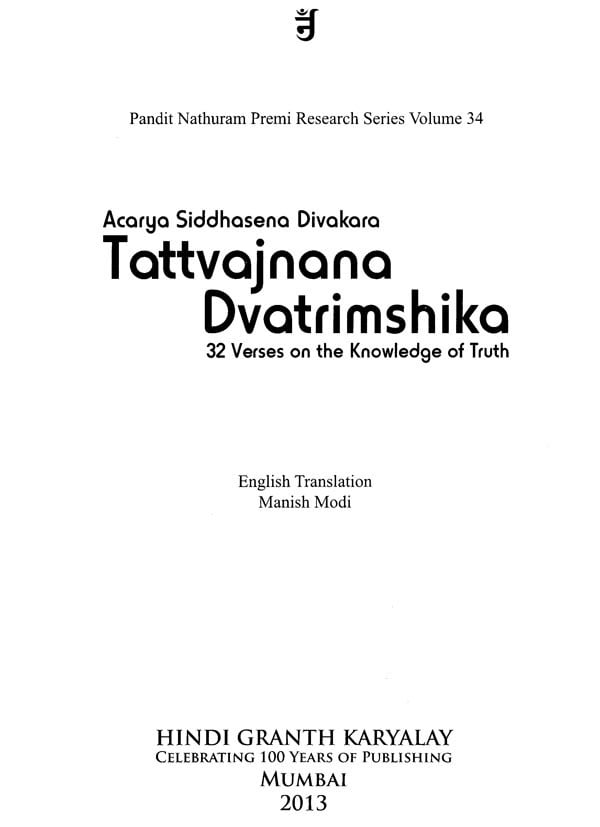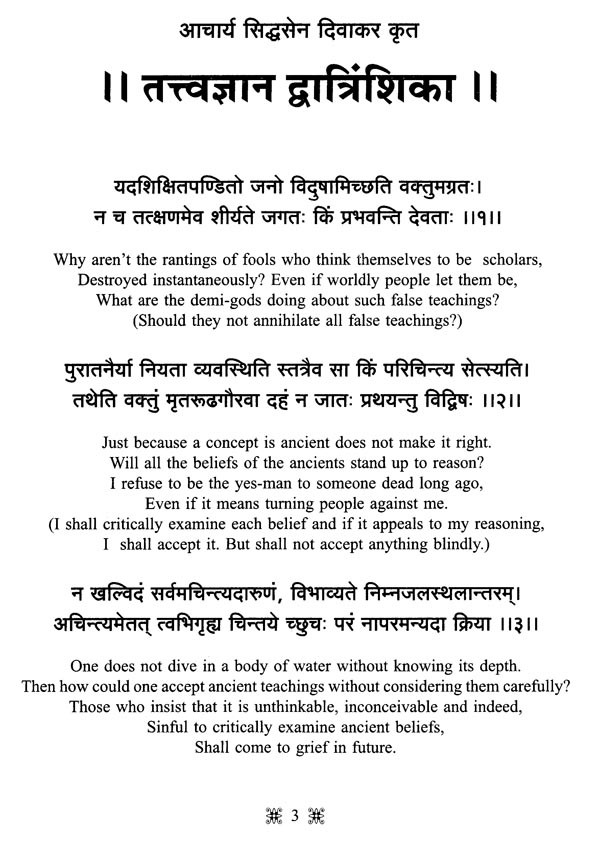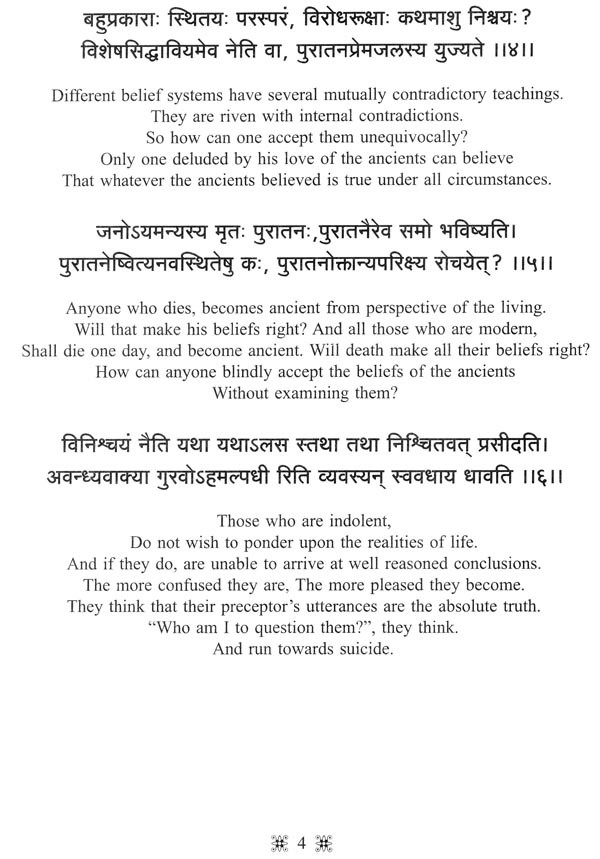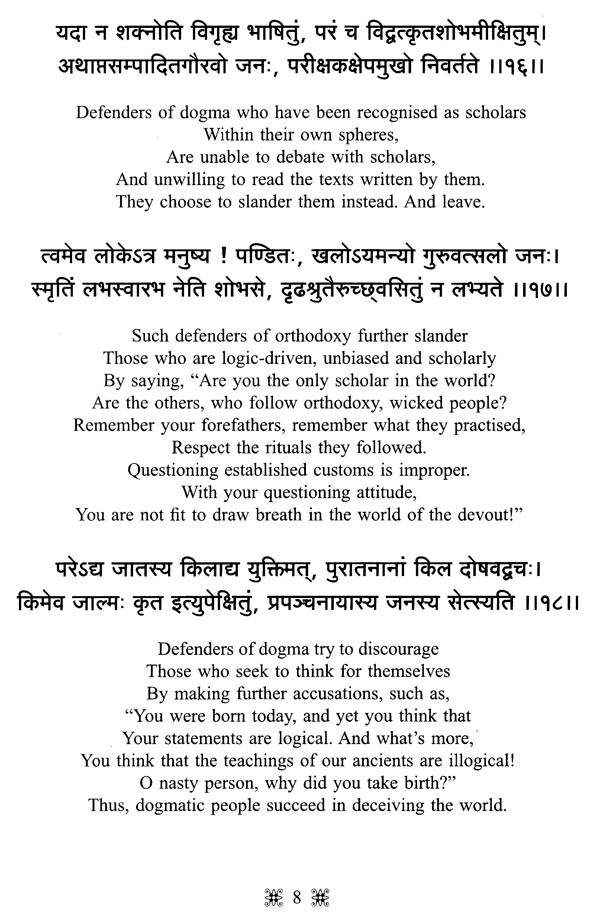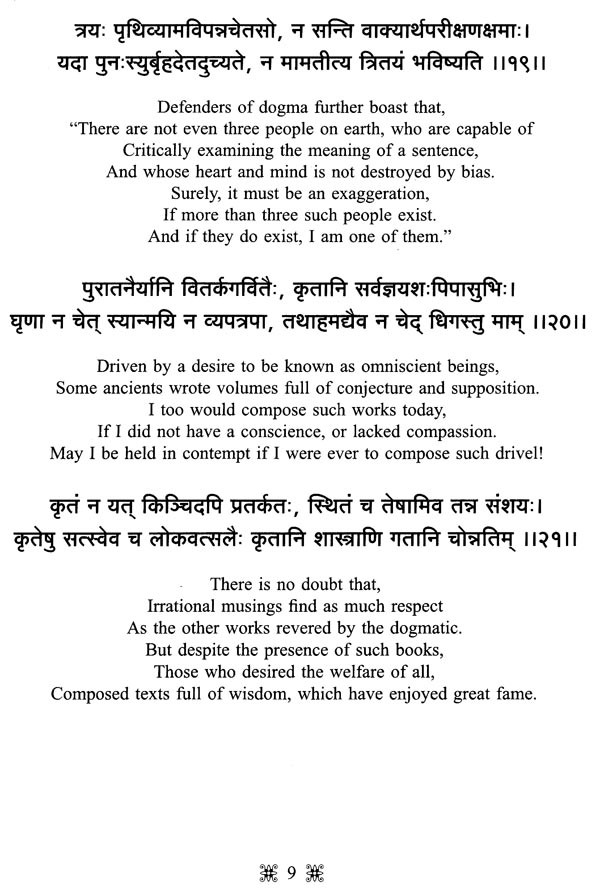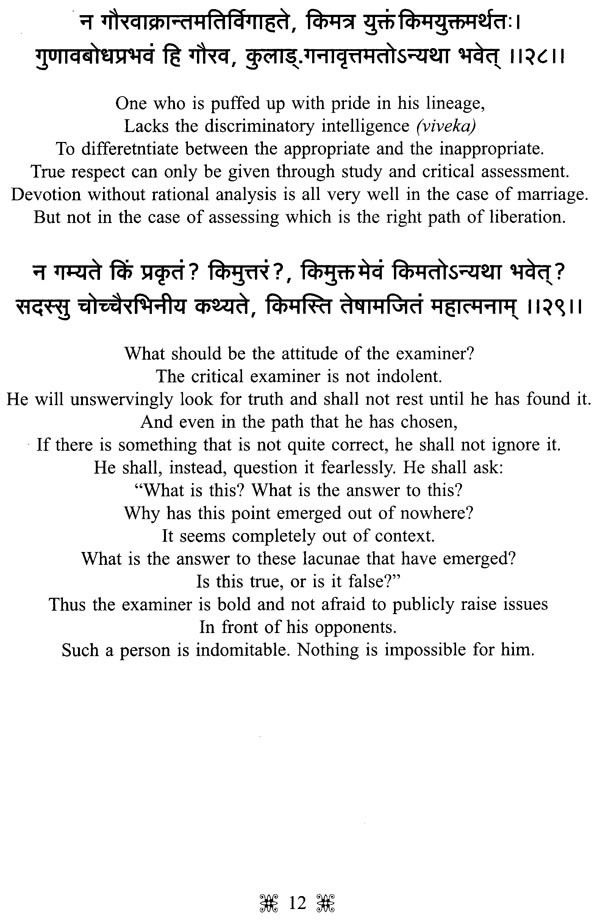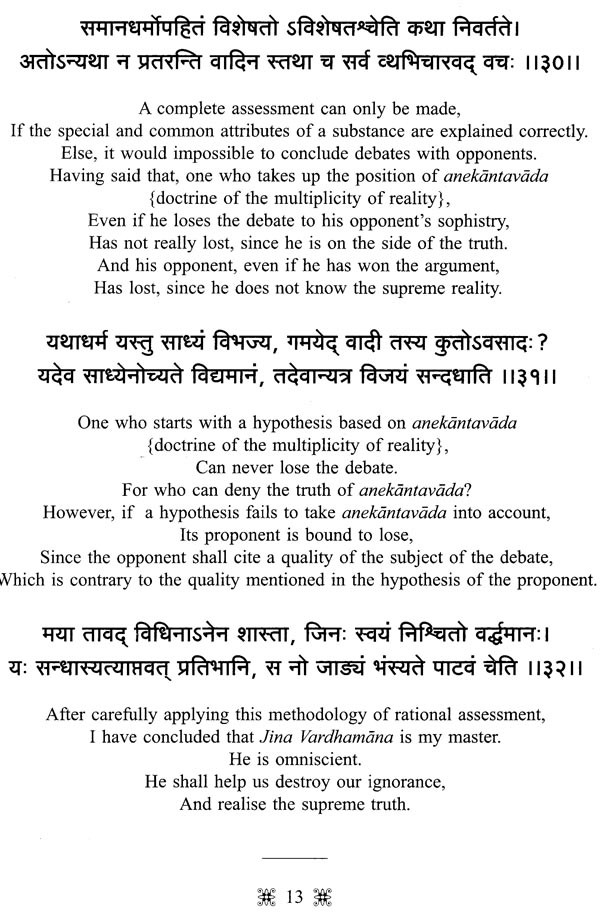
तत्त्वज्ञान द्वात्रिंशिका - Tattvajnana Dvatrimshika By Acarya Siddhasena Divakara (32 Verses on Rational Thought)
Book Specification
| Item Code: | UAB382 |
| Author: | Manish Modi |
| Publisher: | Hindi Granth Karyalaya |
| Language: | Sanskrit and English |
| Edition: | 2013 |
| ISBN: | 9788188769957 |
| Pages: | 13 |
| Cover: | PAPERBACK |
| Other Details | 9.50 X 7.50 inches |
| Weight | 60 gm |
Book Description
Acarya Siddhasena Divakara was a profound thinker and logician. One of his most important works, the Sanmatisutra/Sanmatitarka occupies a place of honour amongst works on Indian philosophy and formal logic. It is the only Indian text on formal logic to be composed in Prakrit. Some scholars consider him to be the author of the Kalyana Mandira Stotra. He also composed some extremely important dvatrimshikas [philosophical works comprising of 32 verses}. These works were incisively written and conveyed extremely pertinent philosophical and doctrinal information. Written in impeccable Sanskrit, these dvatrimshikas are highly reliable sources of information on Jain doctrine.
Jain doctrine is explained through syadvada [doctrine of multi-sidedness1 and anekantavada {the multiplicity of reality}, and the seven viewpoints, shedding light on the epistemology and ontology behind Jainism's syadvada.
This particular dvatrimshika, the Tatvajnana Dvatrimshika, talks about the importance of independent thinking and emphasises rational thought process. The author articulates the dangers of taking things for granted and warns against accepting things without examining them thoroughly. He advocates the method of rigorous and open-minded study before accepting anything as the truth. Through pithy examples he exposes the absurdity of venerating something just because it is old. As Kalidasa wrote,. Being old is not sufficient reason for praise and veneration.
I have translated this text in English in order to ensure that this supremely rational text becomes accessible to the widest possible readership. I thank Acarya Kalyana bodhi for exposing me to this fine work.
Book's Contents and Sample Pages
